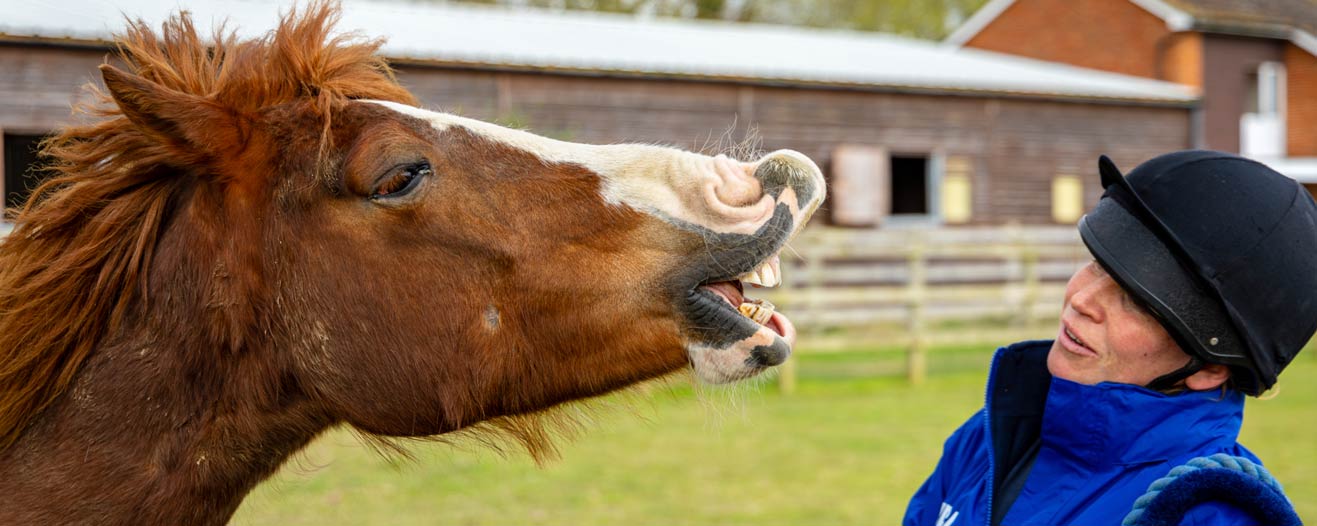- Find a Pet
- Advice and Welfare
- Ways to Give
- Get Involved
- What We Do
- Search
- My RSPCA
- Report a concern
- Gift in Wills
-
Colour modeVivid Calm
- Home
- Advice and welfare
- Pets
- Horses
Caring for horses and ponies
Horses and ponies can live well into their thirties or longer. However, their working lives (when they can be ridden or driven) may be much shorter.
It's estimated that there are between 600,000 and a million horses and ponies in the UK. Each one varies in size, body shape and temperament.

How to keep horses and ponies healthy and happy
Owning and caring for a horse or pony is great fun and immensely rewarding. However, it's also a big responsibility and a long-term commitment because of the care, hard work and cost involved.
There's no single 'perfect' way to care for horses and ponies because every animal and situation is different. However, following our expert advice will help your horse or pony to live a long, healthy, happy life.
Looking after horses in the cost of living crisis
It's no surprise that many horse, pony and donkey owners are worried about how to maintain their animals' welfare and quality of life in the light of rising living costs.
Especially in winter months when horse care costs can increase. Fortunately, there's much that can be done to maintain an excellent level of care for your horse, pony or donkey, while keeping costs down.
Consider any unnecessary livery costs
If you share a yard with other people, why not club together to save money and time? Many feed, forage and bedding suppliers offer reduced rates if they deliver in bulk. Save fuel by sharing transport whenever you can, or consider if it's safe and possible to walk or cycle to the yard.
Avoid unwanted vet bills
Prevention is better than cure and having the fundamentals in place should save costs associated with preventable disease later on. Discuss worming, vaccination, dental checks and feeding routines with your vet to make sure you're using the most effective and economical regimes for your horse.
Look into shoeing options
Keep to regular farrier visits, even if your horse is unshod. Discuss shoeing options for your horse with your farrier; depending on their workload or health status, you may find your horse doesn't need to have a full set of shoes. If there's not much wear on your horse's shoes your farrier may be able to refit them.
Don't overbuy equipment
Resist marketing! Think carefully about what your horse really needs to keep them happy and healthy. Making sure you're not buying unnecessary supplements, rugs or equipment can mean you save some extra pennies. Looking after existing equipment helps it to last longer. Take a look at the National Equine Welfare Council's website to find ways to cut costs without compromising on care.








